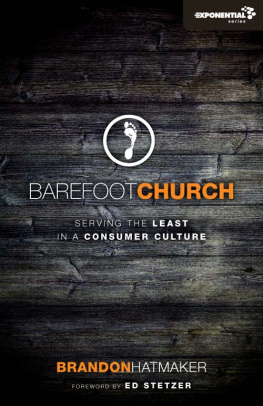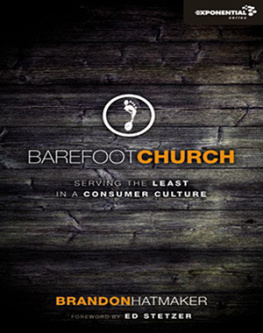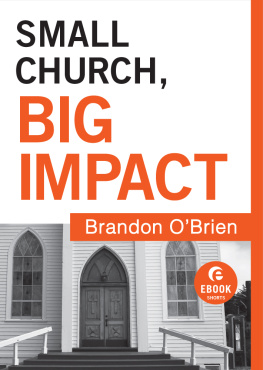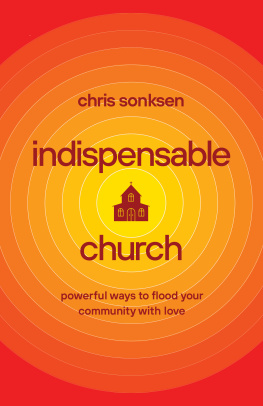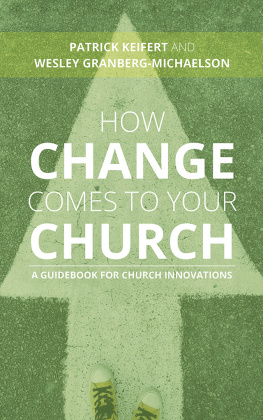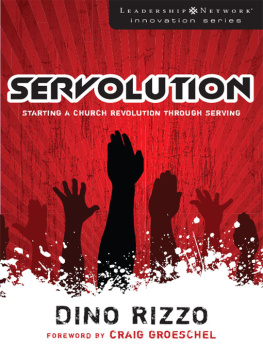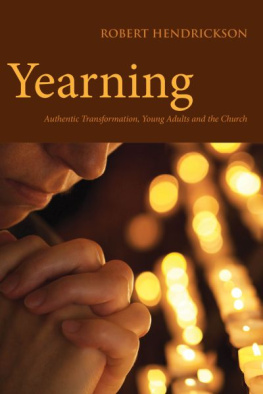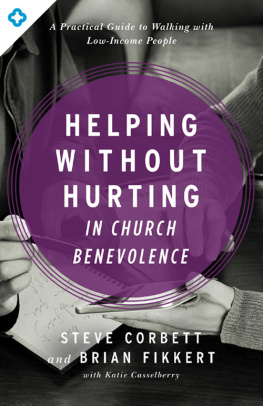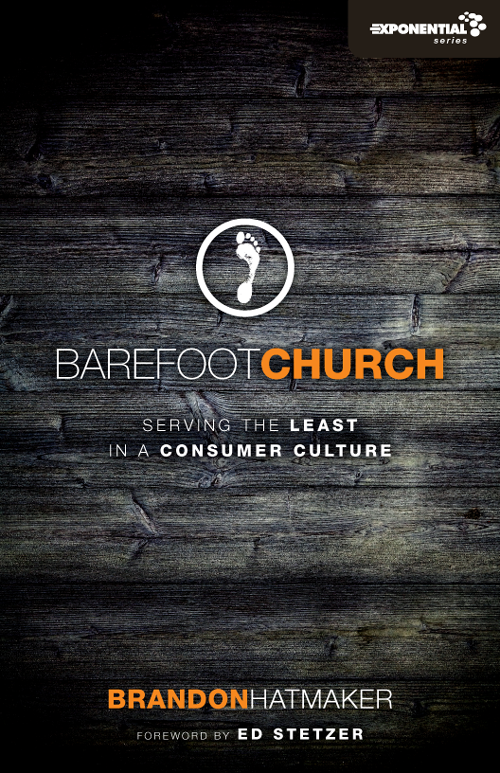To Jesus and Jen. This was your fault. I love you both even more because of it. Jesus, I pray this is of you and for you. Jen, you have the toughest job in the world, dealing with me. Thank you both for letting me try stuff, fail, rant, rave, process, and somehow come out the other end a little further along the road.
Then Jesus asked, What is the kingdom of God like? LUKE 13:18a
J esus spent much of his earthly ministry teaching about Gods kingdom. He taught how that kingdom was different from the kingdoms of the Persians, Assyrians, or Romans the kingdoms with which his listeners were most familiar. The ethics of the kingdom, the teaching that formed the substance of the Sermon on the Mount, sharply contrasted with the here-and-now focus of this life, and his words were like a bright light in the darkness, exposing the hidden sin behind the ritualistic religion that had developed from the law. Using parables, Jesus taught and explained the nuances of his kingdom, clarifying his Fathers role and his own part in bringing about the coming kingdom. Using children as examples, he illustrated to his listeners the type of faith that would mark citizens of the kingdom of heaven (Luke 18:16). And using a model prayer, he spoke of the kingdoms eternal nature (Matt. 6:13).
After Jesus was betrayed and arrested, he was asked by the Roman governor, Pontius Pilate, if he was a king. He responded by saying that his kingdom was not of this world, adding this clarification: If it were, my servants would fight (John 18:36). The normal path to power and authority necessitated the taking up of arms in open rebellion. One of Jesus disciples, Peter, had already started down that path, cutting off the ear of the high priests servant in the garden. Peters violent response, though well-intended, received a rebuke from Christ, who healed the servant and willingly surrendered to the Roman authorities. Jesus was making it clear that his goal was not the violent overthrow of the Roman occupation or the pursuit of political and military rule. His intention was far more subversive.
His goal was to change the world forever.
Jesus established his church and empowered his followers at Pentecost, unleashing the life-changing power of God on an unsuspecting world. Since that time, his followers have continued to effect change by bearing witness to the life, death, and resurrection of Jesus. The visual manifestation of Jesus kingdom rule his church would become the living example of the kingdom that the prophets of God had intoned in generations past. The kingdom of God was inaugurated into this world through the incarnation of Gods Son in the person of Jesus Christ. Through his rule, the kingdom would now be extended by the mission of the church, reaching every corner of creation and overcoming spiritual darkness until the day of Christs return.
In contrast to the prevailing pattern of the culture since the days of Babel and Noah, the church was different a community called to combat greed with contentment, lust with love, brutality with kindness, and power-grabbing with humble service. Instead of conquering through might, the kingdom, like yeast, would gradually infiltrate the nations of the world. The power of God was demonstrated in the gospel, which redeemed and transformed the enemies of Gods kingdom into its holy citizens.
In this book, Brandon Hatmaker issues a clear call to the church: to remember her practical, spiritual heritage as the visible manifestation of Gods kingdom rule. He reminds us that the most world-changing work we do may not be in the halls of governmental power, but rather, among the poor, the homeless, and those who are victims of injustice. He draws our attention to some of the weaknesses of the church in our Western culture how being Christ to the poor can easily become just another ministry on top of our other programs, worship services, small groups, and Bible studies. The church has forgotten the incisive words of Jesus in the parable of the sheep and the goats: that Jesus is most likely to be found among the poor, the hungry, the unclothed, and the imprisoned not necessarily in the places of worldly power: Congressional offices, court rooms, or the hallowed halls of the White House.
And lest we assume that Hatmakers call is just another salvo in the missional/attractional, traditional/contemporary, liturgical/hang-from-the-light-fixtures war of words, he quickly dispels that notion: Barefoot Church is not about attractional, seeker-sensitive, culturally relevant, or other models. It is not a church growth strategy or new style of church. Contrary to popular belief, serving the least does not make a missional church. Its about serving the least and your neighbor. Its about balancing the fasting and the feast. Its about making the altar both a place for communion and a place to leave your shoes.
The gospel of Jesus Christ, embodied and proclaimed by the church, remains the only hope of the world, which means it is also the only hope of the poor and disenfranchised. To be the body of Christ, we would do well to remember that our bare feet, rather than being adorned with Guccis and Jimmy Choos, need only be dressed with the gospel of peace, a gospel through which lives will be changed, not the least of which will be our own.
Ed Stetzer, president of LifeWay Research,
www.edstetzer.com;
author of Transformational Church and Compelled by Love

CHAPTER 1
Theres Got to Be MoreR ecently, my wife, Jen, and I were having an all-too-familiar conversation with a young couple who had given up on church. Not a specific church, the church. While both of them had attended since birth and had even served a few years in ministry, they had become jaded and joined the ranks of those claiming, Churchas we see it is not for us.
They had experienced a myriad of what they considered painful church experiences. Every time they gave it another try, church seemed to lose credibility, trust was broken, and relationships were abused. For years they desperately sought how to navigate the waters of their tension. Yet they had come to the conclusion that in their search for more, as the church remained the same, so did they.
When given a chance to share specifics on the thing that whats-his-name had said or what so-and-so had done, the young wife exploded passionately with a single-themed indictment: The church needs to care more about the poor! They need to fight injustice! They need to help the orphan and widow in their distress! They need to do what they say theyre about! Silence.
Surprising even herself, and with a slightly stunned look on her face, she calmly said as a tear rolled down her cheek, Heres the problem: I dont do it either. I dont know how. I dont even know where to start.
That was a big moment for me. Its easy to cast stones. Its easy to point out the problems in the existing church. And its just as easy to pretend were not a part of the problem. But this was a refreshingly honest confession of ownership that Ive come to find so many believers identifying with. They want to do something of more significance, but they dont even know where to start.

